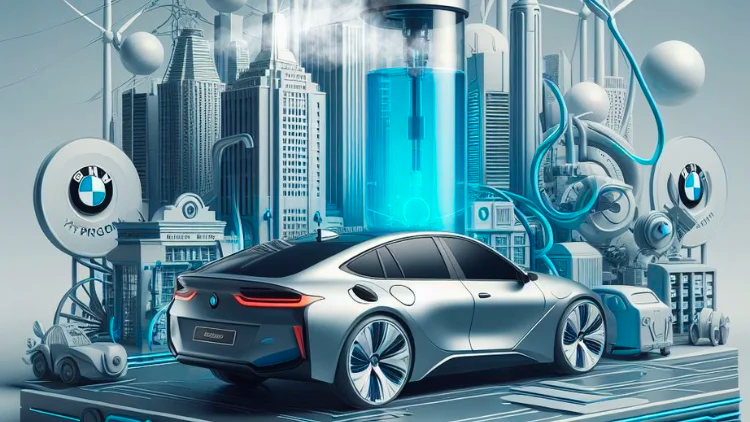German automobile manufacturer and conglomerate BMW (Bayerische Motoren Werke AG) has announced it is switching from EVs (Electric Vehicles) to Hydrogen engines, claiming to have solved the problem.
The move stands to show that although EV manufacturers hope to dominate the automobile industry by 2030, they have a likely contender in the form of BMW’s hydrogen-powered vehicles. On the one hand, EVs promote zero-emission efforts on the other hand, hydrogen engines come with a feature called a hydrogen fuel cell which only releases water vapour – giving them an edge over their competitors for being more eco-friendly.
India Coordinating Humanitarian Assistance In Afghanistan: Centre
Rakhi Sawant’s Ex-Husband Adil Khan Durrani Marries Bigg Boss 12 Contestant Somi Khan
Army Officer Kidnapped From Home In 4th Such Incident
According to the latest statistics reported by TC (Tech Crunch), the US has approximately 2.5 million EVs but only around 15,000 hydrogen cars, all in the California region. However, in the coming years with focus shifting towards fast performance, quick refuelling and eco-friendly choices, hydrogen engines are serving as a major game-changer. So far, only a few manufacturers are working on this and BMW is among them with plans to roll out their cars by 2025. Oliver Zipse, BMW’s CEO, believes hydrogen engines will play a significant role across the world in the long term.

Farewell Guard of Honour presented to outgoing President Dr. Arif Alvi
International Women’s Day being celebrated today
Pak Navy’s maritime exercise Seaspark-24 concludes at Karachi
How Does a Hydrogen Fuel-Cell Vehicle Operate?
A hydrogen fuel-cell vehicle (HFCV) operates with a motor similar to a battery-electric vehicle but instead of a battery, it uses a stack of fuel cells, which combine hydrogen (H2) with oxygen (O2) from the air to produce water vapour and generate electricity. According to the Hydrogen Central website, fuel-cell vehicles are a type of hybrid called fuel-cell hybrid electric vehicles (FCHEV).
It is pertinent to note that while HFCVs are similar to EVs, they can be refuelled quickly while maintaining a consistent driving range irrespective of temperature changes.
BMW is set to introduce the BMW iX5 Hydrogen by 2024.
BMW to Introduce iX5 Hydrogen
One of BMW’s, three hydrogen-powered vehicles, this eco-friendly SUV is designed keeping in mind electric mobility, and impressive performance. The manufacturer aims to ensure zero-carbon emission with hydrogen playing a crucial role.
Presidential Election to be held tomorrow
Pakistan stands with Kashmiris in their just struggle: PM Shehbaz Sharif
Quetta Gladiators Spinner Usman Tariq Reported for Suspect Action

“MS Dhoni is a special player and a brilliant leader,”: Moeen Ali
Justice Deferred: The Case of Zulfiqar Ali Bhutto
Watch: Indian Navy Warship Rescues 21 From Ship Hit By Houthi Missile
The above table showcases some of the advantages of the iX5 hydrogen. On the other hand, while EVs have dominated the market in the last few years, according to the International Energy Agency (IEA) only fourteen percent of vehicles will be EVs by 2022, although the figure may rise by four percent in 2023.
In 2022, Tech Crunch reported automobile giants BMW and Toyota were partnering to produce and sell HFCVs as early as 2025, as confirmed by BMW’s sales chief Pieter Nota. Before this, the two worked to develop the iX5 Hydrogen-based BMW X5 SUV, BMW Z4 and Toyota Supra sports cars in 2019.
Rajnath Singh’s “Strong Response” Warning On Border Row With China
Pak Army sets up mobile medical teams, medical camps in flood-hit Gwadar
Pakistan desires to expand economic cooperation with friendly countries: President
Stay tuned to Baaghi TV for more. Download our app for the latest news, updates & interesting content!






